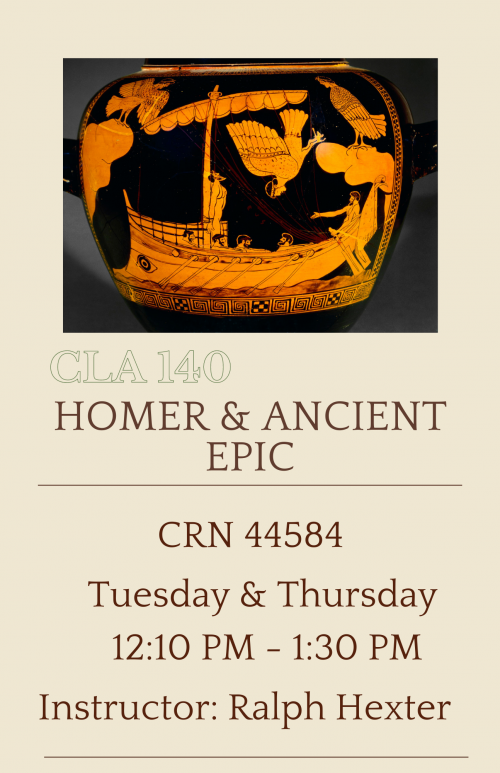Homer & Ancient Epic
CLA 140
Epics are known in many traditions worldwide, and a global perspective is highly valuable for study of ancient Greek and Roman epics, the tradition at the center of this course. We begin by studying the two poems attributed to “Homer,” the Iliad and the Odyssey, both of which open windows on a vibrant oral tradition, a deep bronze age past, and the adjacent, influential cultures of the ancient Near East. Together the Homeric poems introduce a cast of characters, immortal as well as mortal, that populate so many works of literature and other media to our own time. The presence of Homer is pervasive in virtually all subsequent Greek literature, but we will focus on Homer’s reception in the Hellenistic period (above all Apollonius of Rhodes’ Jason and the Argonauts) and then at Rome. Though by no means the first epic in Latin, Virgil’s Aeneid, written under Augustus at the twilight of the republic and the dawn of empire, comes to occupy in the Latin tradition a place comparable to the Homeric poems in Greek. There were other kinds of epic. Ovid’s Metamorphoses could not be more different, yet it too reckons with Homer as well as Virgil, and Lucan’s Civil War is remarkable for its anti-imperial stance and unVirgilian style. Subsequent Latin epics are more overtly Virgilian, and our course concludes with excerpts from one of these (Statius’ Thebaid) and other texts that testify to the degree to which study and emulation of Virgil’s Aeneid was the aim of Latin schoolmasters and Latin poets even after Christianity had become the official religion of Rome

